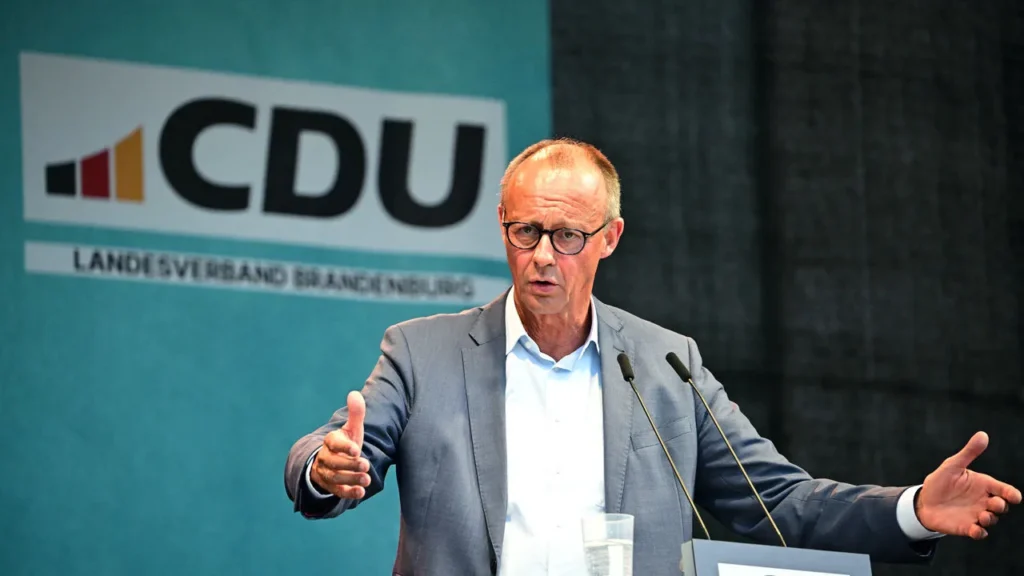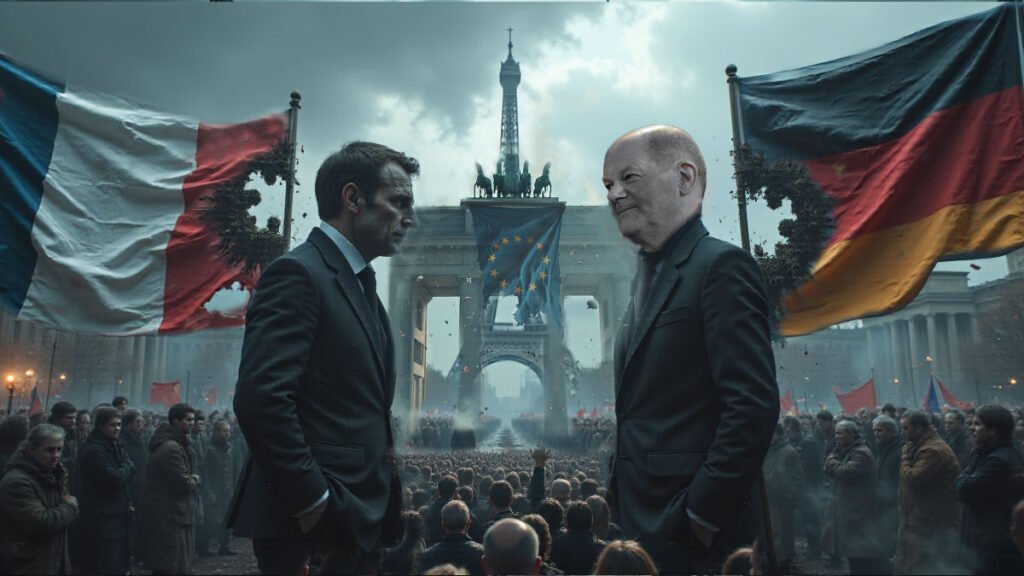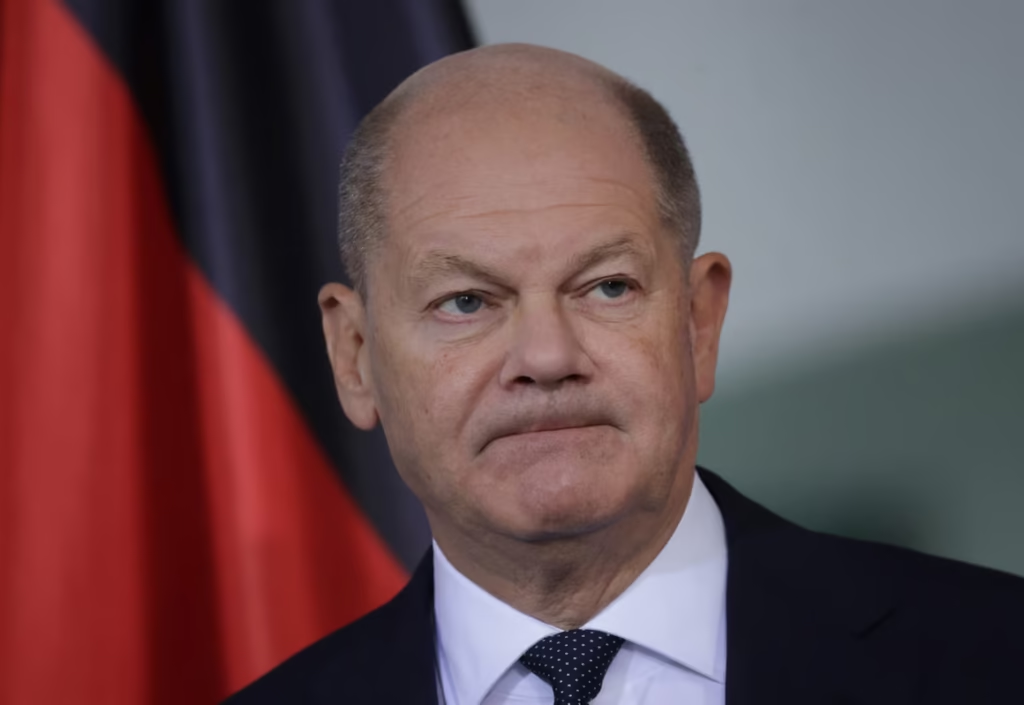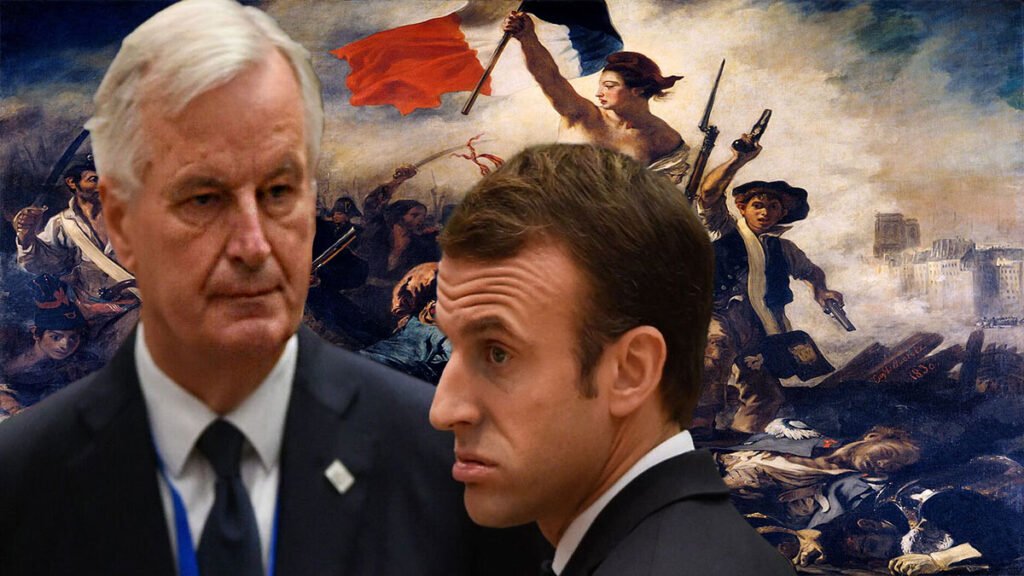Fault Lines of Europe: The Crumbling Foundations of the Franco-German Axis
When historical fault lines crack, the tremors are rarely subtle. The pillars of EU stability—France and Germany—have begun to crumble, revealing a landscape of political fragmentation that threatens to reshape an entire continent’s future.
Last week, France witnessed, President Macron’s presidency in termoul his government devolved into a political carousel, with François Bayrou becoming the fourth Prime Minister this year—less an appointment and more a last-gasp attempt to stitch together a governing coalition that’s still unravelling at the seams.
The French political landscape has transformed into a battleground where Marine Le Pen’s National Rally and Jean-Luc Mélenchon’s France Unbowed represent not marginal movements, but genuine expressions of a populace disillusioned with centrist platitudes. Macron’s once-celebrated centrism now appears as an anachronistic project, unable to bridge deepening social and economic divides.
This week in an extraordinary moment in Germany’s post-war history, Chancellor Olaf Scholz has been ousted in a dramatic no-confidence vote, triggering a snap election that could redefine the nation’s political future. With the election set for February 23, 2025, the collapse of Scholz’s coalition government marks a pivotal shift in German politics, heralding a potential rightward drift amid growing public discontent and economic uncertainty.
The End of the Traffic Light Coalition
The no-confidence vote delivered a resounding defeat for Scholz, with only 207 of the 733 parliamentarians backing his government—far short of the 367 votes required for survival. The collapse of the “traffic light” coalition—an uneasy alliance of Social Democrats (SPD), Greens, and Free Democrats (FDP)—was both inevitable and emblematic of Germany’s deeper political fractures.
The breaking point came when Scholz dismissed FDP Finance Minister Christian Lindner, prompting the FDP to withdraw its ministers. Accusing Lindner’s party of “weeks-long sabotage,” Scholz lamented the breakdown of trust, but the FDP countered with harsh criticism of Scholz’s failure to modernise Germany’s restrictive fiscal policies.
Democratic Mechanisms at Work
The no-confidence vote represents only the sixth such event in Germany’s post-war history. Following this unprecedented parliamentary defeat, Scholz must formally request the dissolution of the Bundestag from President Frank-Walter Steinmeier. The process is governed by constitutional timelines:
- Steinmeier has 21 days to dissolve parliament.
- New elections must occur within 60 days of dissolution.
With Steinmeier likely to approve the request, Germany is now set for an intense electoral campaign over the next two months.
Polls Point to a Political Reckoning
Germany’s political landscape is on the brink of transformation, with polling data indicating dramatic shifts in voter sentiment:
Christian Democratic Union (CDU): 33%
Alternative for Germany (AfD): 17%
Social Democratic Party (SPD): 16%
Greens: 14%
Free Democratic Party (FDP): 4%
Fractured Coalitions, Fractured Politics

The upcoming German elections in February 2025 will be more than a mere electoral event. They represent a potential inflexion point for European democracy. A CDU government with hardline migration policies could fundamentally reconfigure the EU’s social and political architecture.
While the CDU leads with 33%, it lacks a majority, leaving coalition-building a daunting challenge. Friedrich Merz, the CDU leader, has signalled a sharp rightward turn, emphasising stricter migration policies. His proposals include abolishing subsidiary protection for asylum seekers, limiting social benefits for migrants, and outsourcing asylum processing to non-EU nations—policies reminiscent of Italy’s controversial agreements with Albania.
CDU leader Friedrich Merz promising radical changes to migration policy. His proposals include:
- Abolishing subsidiary protection for asylum seekers
- Limiting social benefits for migrants
- Exploring outsourcing of asylum procedures to non-EU countries
Friedrich Merz’s CDU faces an uphill battle in forming a stable government. While the Greens and the SPD could emerge as potential coalition partners, ideological divisions run deep. Meanwhile, the FDP teeters on the edge of political irrelevance, polling at just 4%—below the threshold for parliamentary representation.
The AfD’s rising popularity underscores a growing dissatisfaction with traditional parties, reflecting broader European trends of political polarisation. While Merz’s rejection of the AfD as a coalition partner preserves a semblance of democratic consensus, it also highlights the increasing difficulty of maintaining ideological coherence in coalition governments.
Despite the AfD’s second-place position, Merz has firmly ruled out any partnership with the far-right party, leaving the CDU’s potential coalition partners unclear.
Broader Implications for Germany and Europe

Germany’s current political crisis comes against a backdrop of economic stagnation, with two years of sluggish growth amplifying public frustration and deepening divisions within the country. This economic malaise harks back to the challenges of the early 2000s, when Germany was dubbed “the sick man of Europe”—a reminder that economic sluggishness can have profound political consequences. Today, the situation is further complicated by geopolitical turbulence, particularly as the spectre of Donald Trump’s return to the U.S. presidency casts uncertainty over transatlantic relations, NATO cohesion, and Germany’s role as a stabilizing force in Europe.
Chancellor Scholz’s government has also faced mounting criticism over its handling of the Ukraine war, especially its staunch reluctance to send Taurus missiles to Kyiv. While Scholz has cited concerns over escalation, his cautious stance has been perceived as indecision, both domestically and among EU allies eager to project unity and strength against Russia. This fissure has heightened dissatisfaction and eroded Germany’s credibility as Europe’s leading power.
Yet, viewed through a historical lens, the situation carries echoes of complex dynamics between Germany and Ukraine. From the fraught alliances of World War I, where Germany sought to leverage Ukraine as a buffer against Russia, to the destructive legacies of World War II, the region’s geopolitical importance has long drawn Germany into a balancing act. Today’s tensions, though framed as a defence of European sovereignty, are underscored by this historical sensitivity, where Germany remains wary of appearing too militarily assertive in Eastern Europe.
This careful, some would say paralyzed, approach has done little to quell domestic frustration or appease EU partners demanding decisive leadership. With its economy stagnating and a snap election on the horizon, Germany finds itself in the crosshairs of history—torn between the imperatives of its past and the demands of a precarious present. Doesn’t it feel like we’re all heading down a rabbit hole…
A Moment of Democratic Reckoning

Nothing illustrates the exhaustion of Germany’s political establishment better than Scholz’s parting words—that “no voter could have anticipated the challenges we would face.” These words, intended as a reflection on a turbulent tenure, instead capture the frustration of a government besieged by crises. Yet this moment represents more than a failure of leadership; it is a reckoning with the limitations of centrist governance and the fraying of the European political order.
Germany’s political fragmentation is emblematic of a broader European malaise. The dissolution of the post-Cold War consensus has left a vacuum increasingly filled by populism, nationalism, and fractured alliances. This unravelling reflects the same dynamics destabilising France, Italy, and beyond—where traditional power structures crumble under the weight of economic stagnation, cultural polarization, and disillusionment with the political elite.
As Germany moves toward its February elections, the stakes are immense—not only for the nation but for the stability and direction of Europe as a whole. Germany’s role as the EU’s anchor is under strain, and the world will watch closely as the continent’s largest economy confronts the question of what it means to lead in an era of fragmentation and flux.
The coming months will test Germany’s democratic resilience, forcing its political class to navigate uncharted waters. In a time of profound uncertainty, one thing is clear: the comfortable consensus that once defined German politics is gone. What replaces it will not only shape Germany’s future but also reverberate across the continent, marking a decisive chapter in the European experiment.
France: The Illusion of Centrism Crumbles

To recap on my earlier article The Twilight of European Consensus. Across the Rhine, France presents an equally stark portrait of political decay. President Macron’s revolving door of prime ministers—now on its fourth this year—is not merely administrative churn, but a symptom of a profound legitimacy crisis. François Bayrou’s appointment is less a strategic move and more a desperate attempt to forestall the inevitable.
The French political landscape has transformed into a battleground where Marine Le Pen’s National Rally and Jean-Luc Mélenchon’s France Unbowed represent not marginal movements, but genuine expressions of a populace disillusioned with centrist platitudes. Macron’s once-celebrated centrism now appears as an anachronistic project, unable to bridge deepening social and economic divides.
France in Chaos, Germany in Crisis: The End of European Stability?
“The old world is dying, and the new world struggles to be born: now is the time of monsters.”
― Antonio Gramsci
These national dramas are not isolated incidents but interconnected manifestations of a larger systemic failure. The Franco-German axis—historically the EU’s gravitational centre—is disintegrating at a moment of unprecedented global complexity.
The challenges are manifold: economic stagnation, migration pressures, geopolitical uncertainty, and the return of Trump-style politics to the United States. The incremental, consensus-driven model of European governance is being exposed as fundamentally inadequate to address 21st-century challenges.
I can never tier in this prophetic warning and invoking the words of Antonio Gramsci’s profound observation: we are indeed in a moment where “the old world is dying, and the new world struggles to be born.” The monsters Gramsci spoke of are not external forces, but the systemic failures of our current political institutions.
Support Independent Journalism Today
Our unwavering dedication is to provide you with unbiased news, diverse perspectives, and insightful opinions. We're on a mission to ensure that those in positions of power are held accountable for their actions, but we can't do it alone. Labour Heartlands is primarily funded by me, Paul Knaggs, and by the generous contributions of readers like you. Your donations keep us going and help us uphold the principles of independent journalism. Join us in our quest for truth, transparency, and accountability – donate today and be a part of our mission!
Like everyone else, we're facing challenges, and we need your help to stay online and continue providing crucial journalism. Every contribution, no matter how small, goes a long way in helping us thrive. By becoming one of our donors, you become a vital part of our mission to uncover the truth and uphold the values of democracy.
While we maintain our independence from political affiliations, we stand united against corruption, injustice, and the erosion of free speech, truth, and democracy. We believe in the power of accurate information in a democracy, and we consider facts non-negotiable.
Your support, no matter the amount, can make a significant impact. Together, we can make a difference and continue our journey toward a more informed and just society.
Thank you for supporting Labour Heartlands












